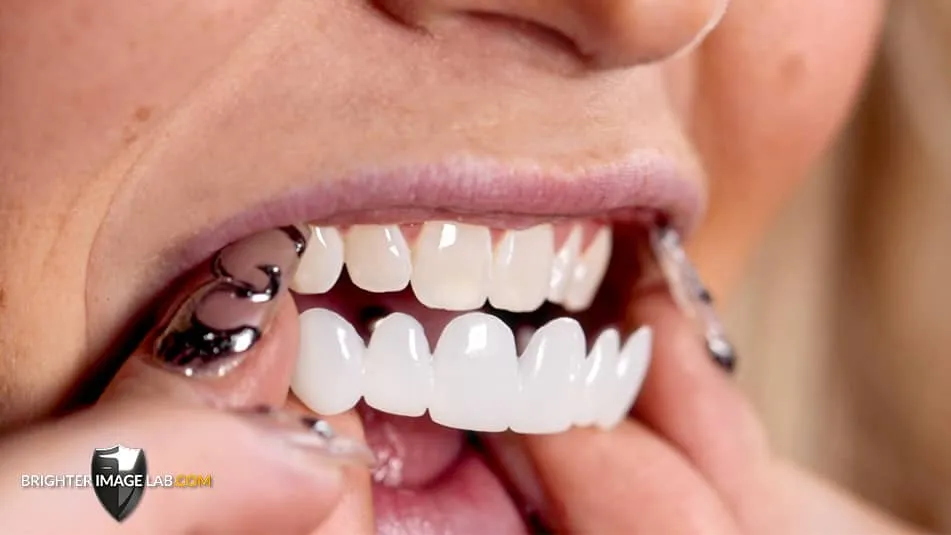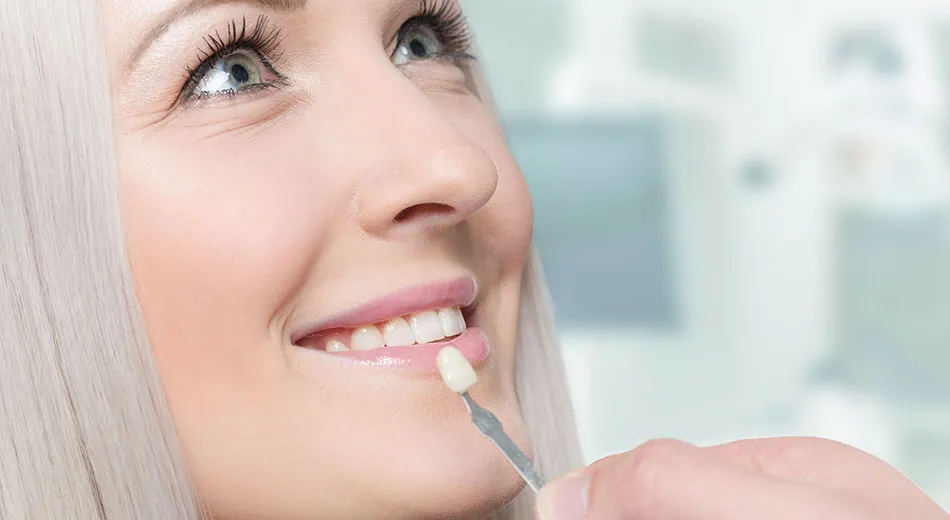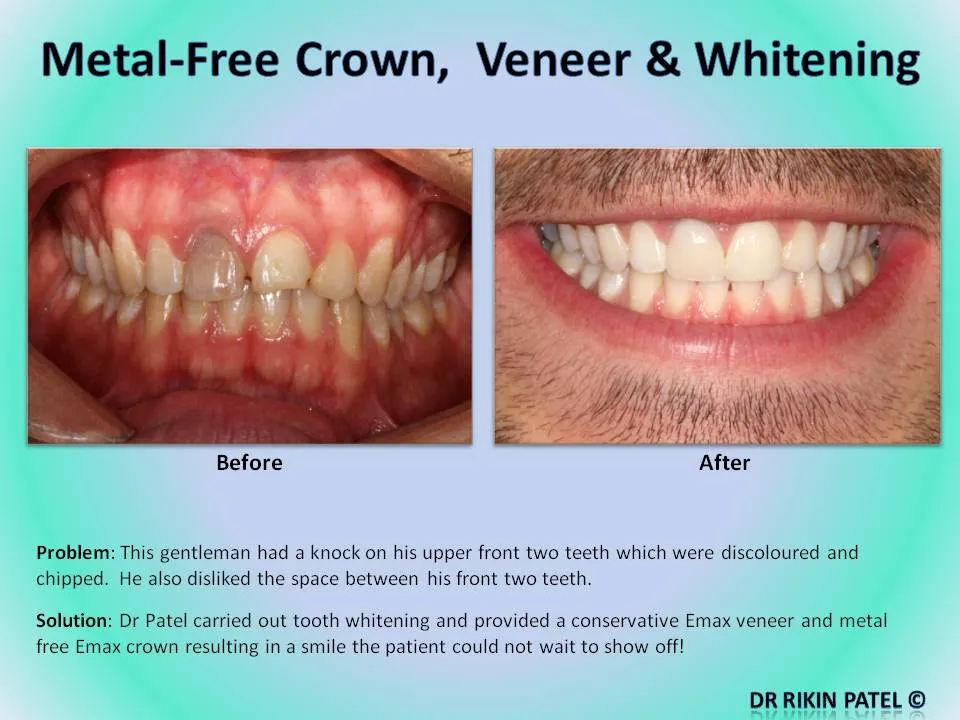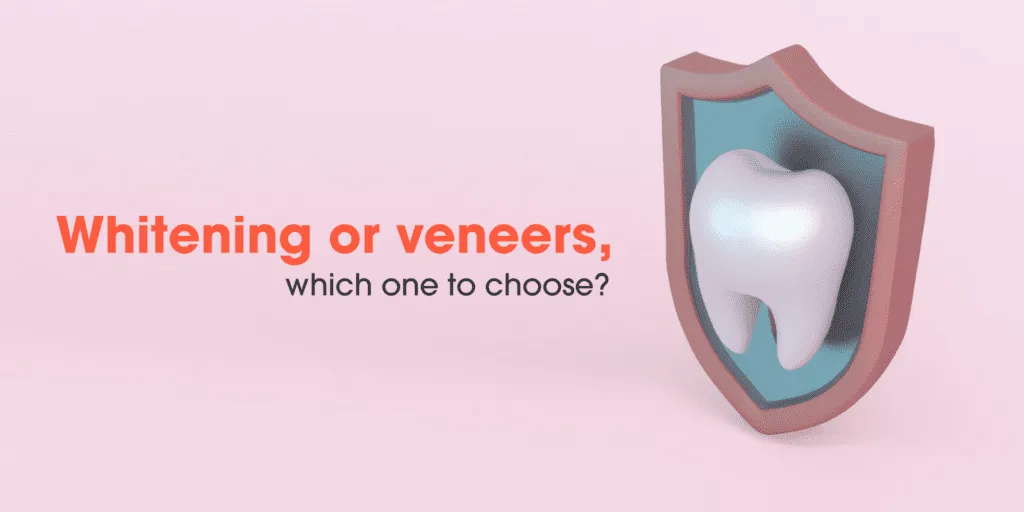Understanding Teeth Whitening and Veneers
Choosing between teeth whitening and veneers can be a significant decision for anyone looking to enhance their smile. Both procedures offer cosmetic benefits, but they address different dental concerns and come with their own sets of advantages and disadvantages. Teeth whitening focuses on lightening the existing tooth enamel, while veneers provide a more comprehensive solution by altering the shape, size, and color of the teeth. Understanding the fundamental differences between these two treatments is crucial for making an informed choice that aligns with your specific needs and goals. This article breaks down the key aspects of each procedure, helping you to determine which option is best suited for you.
What is Teeth Whitening?
Teeth whitening, also known as teeth bleaching, is a cosmetic dental procedure designed to lighten the color of your teeth. It works by using bleaching agents, such as hydrogen peroxide or carbamide peroxide, to break down stains and discoloration that have accumulated on the enamel surface. This treatment is particularly effective for removing stains caused by coffee, tea, tobacco, and certain foods. The process can be done professionally by a dentist or at home using over-the-counter products, though professional treatments typically provide more dramatic and longer-lasting results. The goal is to restore a brighter, more youthful appearance to the teeth, boosting confidence and improving the overall aesthetic of your smile. It’s a popular choice for those looking for a relatively quick and non-invasive way to enhance their smile.
Types of Teeth Whitening Treatments

There are several types of teeth whitening treatments available, each with its own method and effectiveness. In-office whitening, performed by a dentist, involves the application of a high-concentration bleaching agent, often activated by a special light or laser, to accelerate the whitening process. This method usually provides the most immediate and dramatic results, often lightening teeth several shades in a single session. Another common method is at-home whitening, which uses custom-fitted trays provided by your dentist or over-the-counter whitening strips or trays. These options use lower concentrations of bleaching agents and require consistent use over a period of time to achieve the desired results. Finally, whitening toothpastes and mouthwashes are available for maintaining the brightness of your teeth after a whitening treatment, although these products typically remove surface stains rather than significantly altering the color of the enamel.
Benefits of Teeth Whitening
The benefits of teeth whitening are numerous, making it a favored choice for those seeking a brighter smile. The primary advantage is the noticeable improvement in the color of teeth, leading to a more attractive and youthful appearance. This cosmetic enhancement can significantly boost self-esteem and confidence, positively impacting social interactions and overall well-being. In addition to cosmetic benefits, teeth whitening is a relatively non-invasive procedure with minimal downtime. It’s a cost-effective solution compared to more extensive treatments like veneers, making it accessible to a wider range of individuals. Professional whitening treatments also often include a dental check-up, ensuring your oral health is in good condition. Overall, the advantages of teeth whitening extend beyond aesthetics, offering a simple way to enhance your smile and improve your self-image.
What are Veneers?
Veneers are thin, custom-made shells designed to cover the front surface of teeth, improving their appearance. Typically made from porcelain or composite resin, veneers are bonded to the teeth to alter their shape, size, color, or length. This cosmetic dentistry procedure is a versatile solution for addressing a wide range of dental imperfections, including chips, cracks, gaps, stains, and misalignments. Veneers provide a natural-looking and durable way to transform the smile, often requiring minimal alteration of the existing tooth structure. They are meticulously crafted to match the patient’s natural teeth, ensuring a seamless and aesthetically pleasing result. Veneers offer a more comprehensive approach to smile enhancement than teeth whitening, providing a longer-lasting and more dramatic transformation.
Types of Veneers

There are two primary types of veneers: porcelain veneers and composite resin veneers. Porcelain veneers are the more durable and aesthetically superior option. They are custom-made in a dental laboratory and are known for their natural appearance, mimicking the translucency of natural teeth. Porcelain veneers are also highly resistant to staining and can last for many years with proper care. Composite resin veneers, on the other hand, are applied directly to the teeth by the dentist. They are less expensive and can often be completed in a single visit. However, composite veneers are more prone to staining and are not as durable as porcelain veneers, typically requiring replacement sooner. The choice between these two types depends on the patient’s specific needs, budget, and desired longevity of the treatment.
Benefits of Veneers
Veneers offer a multitude of benefits, making them a popular choice for smile makeovers. The primary advantage is the ability to correct various cosmetic imperfections, such as chips, cracks, gaps, and discoloration, resulting in a dramatically improved smile. Veneers provide a long-lasting solution, with porcelain veneers in particular offering durability and stain resistance. They are custom-made to match the patient’s natural teeth, ensuring a seamless and aesthetically pleasing result. Veneers can also correct minor alignment issues, eliminating the need for orthodontic treatment in some cases. Furthermore, veneers boost self-confidence by creating a more attractive and symmetrical smile. With proper care, veneers can provide years of a beautiful and confident smile, making them a worthwhile investment for many individuals.
Teeth Whitening vs Veneers Fact 1 Cost Comparison
Cost is a significant factor when deciding between teeth whitening and veneers. Teeth whitening is generally the more affordable option. The cost of professional teeth whitening can vary but is typically less than the cost of veneers. Over-the-counter whitening products, such as strips and trays, are even more budget-friendly. Veneers, being a more complex and involved procedure, come with a higher price tag. The cost depends on factors such as the type of veneer (porcelain being more expensive) and the number of teeth being treated. While veneers represent a larger upfront investment, they offer a longer-lasting solution. Ultimately, the best choice depends on your budget and the extent of the cosmetic improvements you desire.
Teeth Whitening vs Veneers Fact 2 Procedure

The procedures for teeth whitening and veneers differ significantly. Teeth whitening is a relatively simple and non-invasive process. In-office whitening involves the dentist applying a bleaching agent to the teeth and activating it with a special light. At-home whitening uses custom trays or over-the-counter products. The process typically takes a few weeks to complete. Veneers require a more involved procedure. It involves preparing the teeth by removing a thin layer of enamel, taking impressions, and then bonding the custom-made veneers to the teeth. This process usually takes several appointments. The preparation for veneers is irreversible, as it alters the natural tooth structure. Both procedures are performed under the guidance of a dental professional, but their complexity and invasiveness vary considerably.
Teeth Whitening vs Veneers Fact 3 Longevity and Maintenance
The longevity and maintenance requirements of teeth whitening and veneers differ. Teeth whitening results are not permanent and can fade over time. The duration of the whitening effect depends on factors like lifestyle, diet, and oral hygiene. Touch-up treatments may be needed periodically to maintain the desired brightness. Veneers, particularly porcelain veneers, are more durable and can last for many years, often a decade or more, with proper care. Maintenance includes regular brushing, flossing, and dental check-ups. Veneers are resistant to staining but can be damaged by trauma or excessive biting forces. Good oral hygiene is crucial for maintaining the longevity and appearance of both teeth whitening results and veneers.
Teeth Whitening vs Veneers Fact 4 Aesthetic Results
The aesthetic results of teeth whitening and veneers differ in their scope. Teeth whitening primarily focuses on improving the color of the teeth, making them appear brighter and more youthful. While effective for addressing discoloration, it does not change the shape, size, or alignment of the teeth. Veneers provide a more comprehensive transformation. They can address a variety of aesthetic concerns, including color, shape, size, and alignment. Veneers can correct chips, cracks, gaps, and minor misalignments, resulting in a complete smile makeover. The choice depends on the desired outcome. Teeth whitening is suitable for those with minor discoloration, while veneers are ideal for more extensive cosmetic improvements.
Teeth Whitening vs Veneers Fact 5 Suitability

The suitability of teeth whitening and veneers varies depending on individual needs and circumstances. Teeth whitening is suitable for individuals with healthy teeth and gums who are primarily concerned with lightening the color of their teeth. It’s a good option for those with surface stains caused by coffee, tea, or tobacco. Veneers are suitable for individuals with a broader range of cosmetic concerns, including chips, cracks, gaps, misalignment, and severe discoloration that teeth whitening cannot address. Veneers are also a good option for those who want to change the shape or size of their teeth. Consulting with a dentist is essential to determine the best option based on your oral health and aesthetic goals.
Making the Right Choice Teeth Whitening or Veneers
Choosing between teeth whitening and veneers requires careful consideration of your individual needs, goals, and budget. Consider what aspects of your smile you’d like to improve. If you primarily want to lighten the color of your teeth and have no other significant cosmetic concerns, teeth whitening may be the best option. If you have a wider range of issues, such as chips, cracks, gaps, or misalignment, veneers might be a more suitable choice. Consider the cost, procedure, longevity, and maintenance requirements of each treatment. Research and compare the pros and cons of each, and weigh them against your expectations. Your dentist can offer the best guidance based on your specific case.
Consulting with a Dentist
Consulting with a dentist is the most crucial step in deciding between teeth whitening and veneers. A dentist can assess your oral health, identify any underlying issues, and recommend the most appropriate treatment option. They can discuss your cosmetic goals, explain the procedures, and answer any questions you may have. Your dentist will also consider factors such as your tooth structure, enamel thickness, and any existing dental work. They will provide a personalized treatment plan tailored to your specific needs and expectations. Remember, the expertise and advice of a dental professional are invaluable in ensuring a safe and effective outcome.
Final Thoughts

Ultimately, the decision between teeth whitening and veneers depends on your individual circumstances and desired outcome. Teeth whitening offers a cost-effective solution for improving the color of your teeth, while veneers provide a more comprehensive approach to smile enhancement. By understanding the key differences between these two cosmetic dentistry options and consulting with your dentist, you can make an informed decision that will help you achieve the beautiful, confident smile you’ve always wanted. Prioritize your oral health and seek professional advice to ensure the best possible results.
